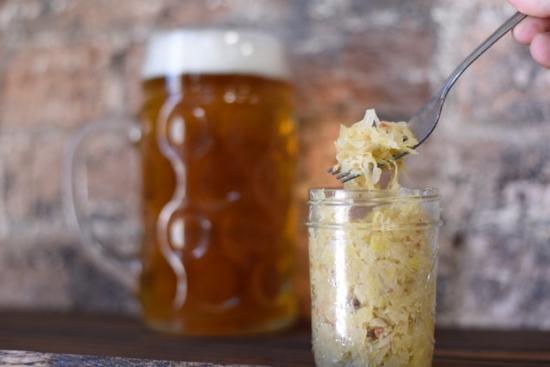Fermented Foods May Lower Your Risk of COVID-19 Death
Story at-a-glance
- Countries that consume higher amounts of traditionally fermented foods have lower COVID-19 mortality rates. According to German researchers, significant changes in the microbiome caused by modern life and low fermented food consumption may have increased the spread or severity of the disease
- For each gram-per-day increase in the average national consumption of fermented vegetables, the mortality risk for COVID-19 decreased by 35.4%
- A review of seven small clinical trials found probiotics and/or prebiotics may be helpful for those struggling with depression and anxiety
- Two types of gut bacteria in particular, Coprococcus and Dialister bacteria, have been shown to be “consistently depleted” in individuals diagnosed with clinical depression
- Gut bacteria associated with good mental health synthesize the dopamine metabolite 3,4-dihydroxyphenylacetic acid, while those associated with depression produce γ-aminobutyric acid
Many articles detail lifestyle and dietary strategies that may decrease your COVID-19 risk by boosting your immune function and general health. Now we can add fermented foods to the list, which shouldn’t come as such a great surprise, considering the influence your gut health has on your immune system.
The study,1 posted July 7, 2020, on the pre-print server medRxiv, conducted by researchers in Berlin, Germany, looked at whether diet might play a role in COVID-19 death rates. Interestingly, mortality rates tend to be lower in countries where consumption of traditionally fermented foods is commonplace. As reported by News Medical Life Sciences:2
“The researchers say that if their hypothesis is confirmed in future studies, COVID-19 will be the first infectious disease epidemic to involve biological mechanisms that are associated with a loss of ‘nature.’ Significant changes in the microbiome caused by modern life and less fermented food consumption may have increased the spread or severity of the disease, they say.”
Fermented Veggie Consumption May Lower COVID-19 Mortality
The researchers obtained data from the European Food Safety Authority (EFSA) Comprehensive European Food Consumption Database and compared consumption levels with COVID-19 mortality statistics (deaths per capita) for each country, obtained from the Johns Hopkins Coronavirus Resource Center.
The EFSA database includes statistics on countries’ consumption of fermented vegetables, pickled or marinated vegetables, fermented milk, yogurt and fermented sour milk specifically.
They also looked at potential confounders, such as gross domestic product, population density, percentage of the population over the age of 64, unemployment and obesity rates. According to the authors:3
“Of all the variables considered, including confounders, only fermented vegetables reached statistical significance with the COVID-19 death rate per country.
For each g/day increase in the average national consumption of fermented vegetables, the mortality risk for COVID-19 decreased by 35.4%. Adjustment did not change the point estimate and results were still significant.”
Probiotics May Ease Depression
In related news, a review4 of seven small clinical trials has found probiotics and/or prebiotics may be helpful for those struggling with depression and anxiety. While these mental health challenges are epidemics in their own right, the global lockdowns certainly have not made the situation any better.
According to the authors,5 all of the studies “demonstrated significant improvements in one or more of the outcomes” compared with no treatment, placebo, or baseline measurements, leading them to conclude that “utilizing pre/probiotic may be a potentially useful adjunctive treatment” for patients with depression and/or anxiety.





















